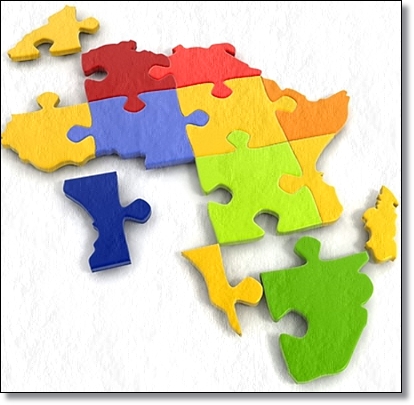Transforming Africa Through Knowledge & Innovation

 |
However, we do know that there are significant challenges that confront the continent, which require innovative approaches and innovative solutions. Despite falling poverty levels, large disparities in socio-economic indicators persist across regions, within countries, and between men and women.This reinforces the challenges of inequality and social exclusion, which contribute to conflicts, violence and different forms of social injustices. Then there are the challenges of jobless growth, vulnerabilities to external shocks and growing youth unemployment.
To ensure inclusion and enhance resilience as well as sustain development gains, Africa needs and should significantly invest in knowledge and innovation.
In Ethiopia, we are using knowledge and innovation to bring about transformation through targeted interventions that are helping unleash the entrepreneurial spirit of Ethiopians, particularly women and youth. We are doing this through an Entrepreneurship Development Programme and leveraging key partnerships with a large number of stakeholders, including Canada and Microsoft.
Development challenges today are not only complex but they are also interconnected. At the heart of solving such complex challenges lies knowledge and innovation.
Allow me to share with you four important points of reference. First, Innovation that spreads across a wide range of fields can steadily break down social, political and institutional barriers, irrespective of levels of development. Second, Rapid advances in internet and communication technology are connecting people who have previously been excluded from services and opportunities and is also fueling growth.
In Africa, new digital entrepreneurs are addressing specific service delivery challenges, information asymmetries, and market gaps through innovation and using Internet technologies. For example, in Nigeria, mobile technology has revamped the delivery of fertilizer subsidies by eliminating opportunities for corruption and expanding the number of farmers reached.
We are witnessing improved access to markets and bargaining power through agricultural exchanges – like the East Africa Exchange -- which is providing a virtual trading platform as well as support services and market intelligence. Such interventions are helping to bring about higher agricultural productivity and deliver a triple dividend for Africa—Sustained food security, higher human development and lower pressure on land and water.
Third, New livelihoods and employment opportunities are emerging for young entrepreneurs and women from digital technology. Sharing knowledge and innovation through internet and communication technologies has the potential to enhance economic equality, social mobility, citizen’s access to information and participation in governance as well as economic growth.
Fourth, the spread of knowledge and innovation has the potential to transform society, improve our mutual understanding and eliminate power differentials. But critical gaps that militate against maximizing such benefits must be addressed. Such gaps include weaknesses in regulation, the existence of large segments of the population with a low skills base, costly access to technology, unfavorable business environments and weak capacity for innovation.
Despite the potential and recent progress in many areas, the current disturbing Ebola outbreak is casting a dark cloud over Africa. However, we must not let this scourge overshadow the progress that the continent continues to make and the positive trends we are witnessing.
We are beginning to see Africa harnessing the transformative power of innovative technology to improve productivity, raise living standards and bridge the communication gap. For example, in Nigeria, we have Konga, Jumia, Paga and Jobberman which link employers and jobseekers. In Mozambique, moWoza has created efficient supply chains to deploy available taxi drivers to deliver parcels from wholesalers to informal traders. In South Africa, ReKindle Learning, a South African startup, has developed personalised interactive learning tools. Success stories like these are attracting global investors and spurring the formation of local angel investor and venture capital networks. Incubators are also springing up across the continent, from Kenya’s iHub, South Africa’s JoziHub to Cameroon’s ActivSpaces.
All these are creative and powerful tapestry of innovations that bode well for Africa’s transformation agenda.
I propose for consideration the following:
1.What are the priority sectors for African countries to focus on that would lead to more inclusive development of knowledge and access to innovation?
2. What are the priority actions for African countries to build systems for promoting innovation – both individually and collectively?
3. What partnerships around knowledge and innovation need to be developed to implement Africa’s agenda for economic and social transformation?
Innovation neither happens by chance nor in a vacuum. Innovation cannot be legislated; it takes deliberate policy actions, enablers, positive incentives and entrepreneurship to make it happen. Leapfrogging and sustaining the resurgent Africa requires smart solutions anchored in knowledge and innovation. African governments and all national actors must grasp the increasing opportunities that technology and innovation offer for human development and the transformation of the continent.
By Abdoulaye Mar Dieye
UNDP Regional Bureau for Africa Director.
